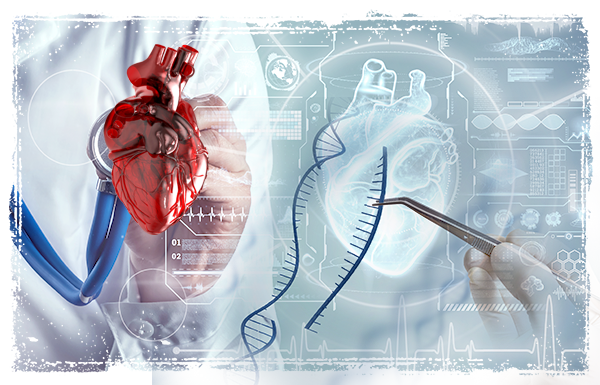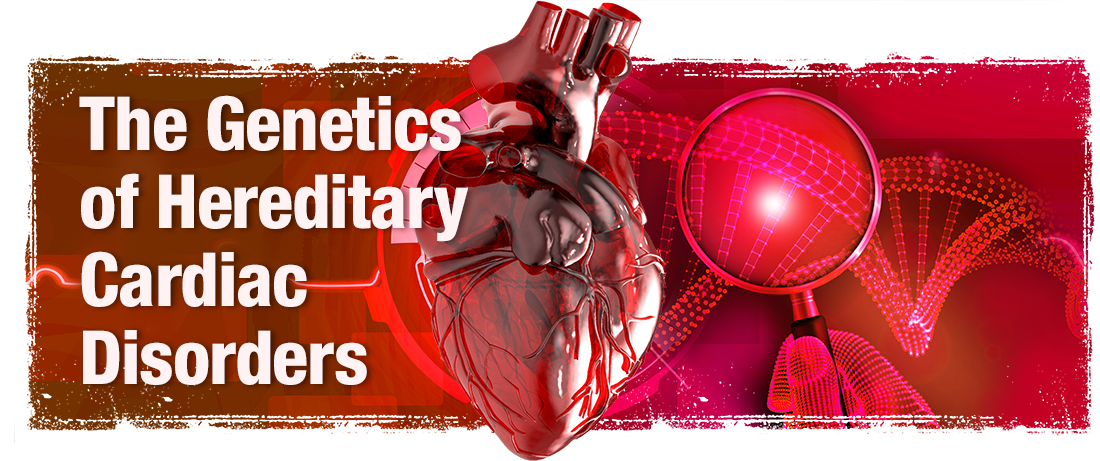Beyond Symptoms: Gain Unprecedented Insight into Your Cardiac Condition’s Hereditary Risks
A deeper exploration of the cutting-edge science behind the Ayass Bioscience Cardiac Genetic Analysis

Understanding the Science
Understand Your Genetic Risk for Heart Disease — With Precision. Comprehensive analysis of 174 genes linked to 17 cardiovascular disorders.
If you’re navigating heart-related health challenges or have a family history of cardiac conditions, genetic insights can be a powerful tool. Our advanced genetic test is designed to uncover the inherited causes of cardiovascular disease—offering far more than a routine screening.
This comprehensive panel analyzes 174 genes associated with 17 types of cardiovascular disorders, including cardiomyopathies, arrhythmias, high cholesterol and triglyceride levels, aortopathies, and more. Even if you’re not experiencing symptoms, this test can reveal hidden genetic risks that may impact your heart health down the line.
Using a simple cheek swab or small blood sample, our certified genetics lab at Ayass Bioscience in Dallas-Fort Worth performs an in-depth analysis that reaches beyond standard methods. We identify genetic variants traditional tests often miss—helping you and your doctor make informed decisions about prevention, monitoring, and care.
The Cardiac Genetic Enigma: Why Deeper Genetic Understanding is Key
Heart Disease Begins at the Molecular Level. So Should Your Testing. Cardiac conditions are often deeply rooted in genetics.
While standard diagnostic tools offer only a limited view, a more complete understanding begins with uncovering the inherited variations that influence how your heart develops, functions, and regulates itself.
Our advanced genetic panel is built to do just that. It takes a deeper dive into your DNA to examine:
What Sets Us Apart: Intelligent Integration Through AI.
At the core of our approach is the Proprietary Agentic AI Platform, developed by Ayass Bioscience. This advanced system doesn’t just process genetic data — it interprets complex patterns across multiple genes to deliver insights with clarity and precision. By combining cutting-edge analytics with expert interpretation, our platform provides a depth of understanding that goes far beyond traditional genetic testing.
Explore Key Cardiovascular Conditions
Our test screens for genetic variants linked to key cardiovascular conditions.
Click on any condition below to explore how genetics may play a role and what our analysis can uncover:
Genetic Analysis: Revealing Your Cardiac Predispositions
Understanding Genetic Predisposition Testing
Variant Classification
Our analysis classifies genetic variants according to established guidelines:
PATHOGENIC:
Variants that are known to cause disease.
LIKELY PATHOGENIC:
Variants with strong evidence suggesting they cause disease.
VARIANT OF UNCERTAIN SIGNIFICANCE (VUS):
Variants where the clinical impact is currently unclear.
LIKELY BENIGN:
Variants unlikely to be associated with disease.
BENIGN:
Variants that are not associated with disease.

Frequently Asked Questions
Our Process
The Ayass Bioscience Difference
What You’ll Receive
Professional testing kit with clear instructions
Prepaid FedEx shipping materials
Secure sample collection tubes
Comprehensive genetic analysis report
BE PROACTIVE – Know your genetic predisposition to various types of cardiac conditions (heart diseases) and TAKE ACTION BASED ON YOUR RESULTS
Lifestyle and diet aren’t the only factors of the health of your heart. Genetics play a major role in it. Take action today and get a better understanding of your heart health. Genetic testing identifies changes in your genes that could increase your risk for developing a serious, inherited form of heart disease, even if you are generally healthy and without personal or family history.
We are bridging science to clinical practice by implementing cutting edge technology to evaluate your hereditary cardiac conditions risk. We provide DNA sequencing for targeted panels, allowing us to focus on specific areas of interest at a reduced price and faster delivery time.
Our laboratory’s technology can accommodate samples collected by medical grade foam tipped buccal swab, making it a viable alternative to a trip to the phlebotomist and reducing the impact of blood-drawing on patients’ health.
Our Cardio Sequencing Panel focuses on identifying 17 inherited cardiac conditions
Our panel targets 174 genes with known associations to 17 inherited cardiac conditions including cardiomyopathy, arrhythmia, hypercholesterolemia, hypertriglyceridemia, aortopathy and more. This assay is performed using genomic DNA isolated from blood collected via capillary puncture or a swab.
The test is intended for predictive genetic testing to determine the chances that a healthy individual with or without a family history of cardiac conditions might develop heart disease.
It is also performed as a pre-symptomatic genetic testing in order to determine whether an individual with a family history of cardiac disease, but no current symptoms, has the gene alterations associated with heart disease. It is also intended for post-symptomatic genetic testing to identify the potential underlying cause of an existing cardiac disease.
Why get tested?
ADVANCED KNOWLEDGE
This test might give you the advance knowledge that you might develop heart disease or that you might have a 50% increased risk of suffering a heart attack, which can help you make decisions that will limit the risk.
Mutations in genes can affect the way the heart cells communicate, the strength of the heart muscle, and affect the heart rhythm condition, resulting in fast, chaotic heartbeats. Identifying these genetic factors now plays an important role in the disease prognosis, therapy and, therefore, outcome.
MEDICATION RESPONSE
Up to 40% of people have gene variants that prevent their liver from activating medications, putting them at increased risk for a clot-caused heart attack. Our Pharmacogenetic Testing allows us to assess the likelihood that an individual will have a normal, reduced, or enhanced response to certain medications. This is very important because it dictates how a person responds to a treatment prior to actually receiving the treatment based on their genetics, improving efficacy and reducing adverse effects.
We strongly recommend that you seek genetic counseling to understand the limitations and possible consequences of this test.
All tests are performed at Ayass BioScience, LLC (DBA Ayass Laboratory, LLC), a CLIA-certified laboratory.
If you have any questions about Genetic Testing, Clinical Testing, Cytokine Testing, or Pharmacogenetic Testing at Ayass BioScience, LLC—or about Transcriptome Analysis (conducted at Ayass BioScience, LLC for research purposes only and not FDA-approved)—please call us at 972-668-6005 or fill out the contact form at the bottom of this page. We’ll be happy to answer your questions.






